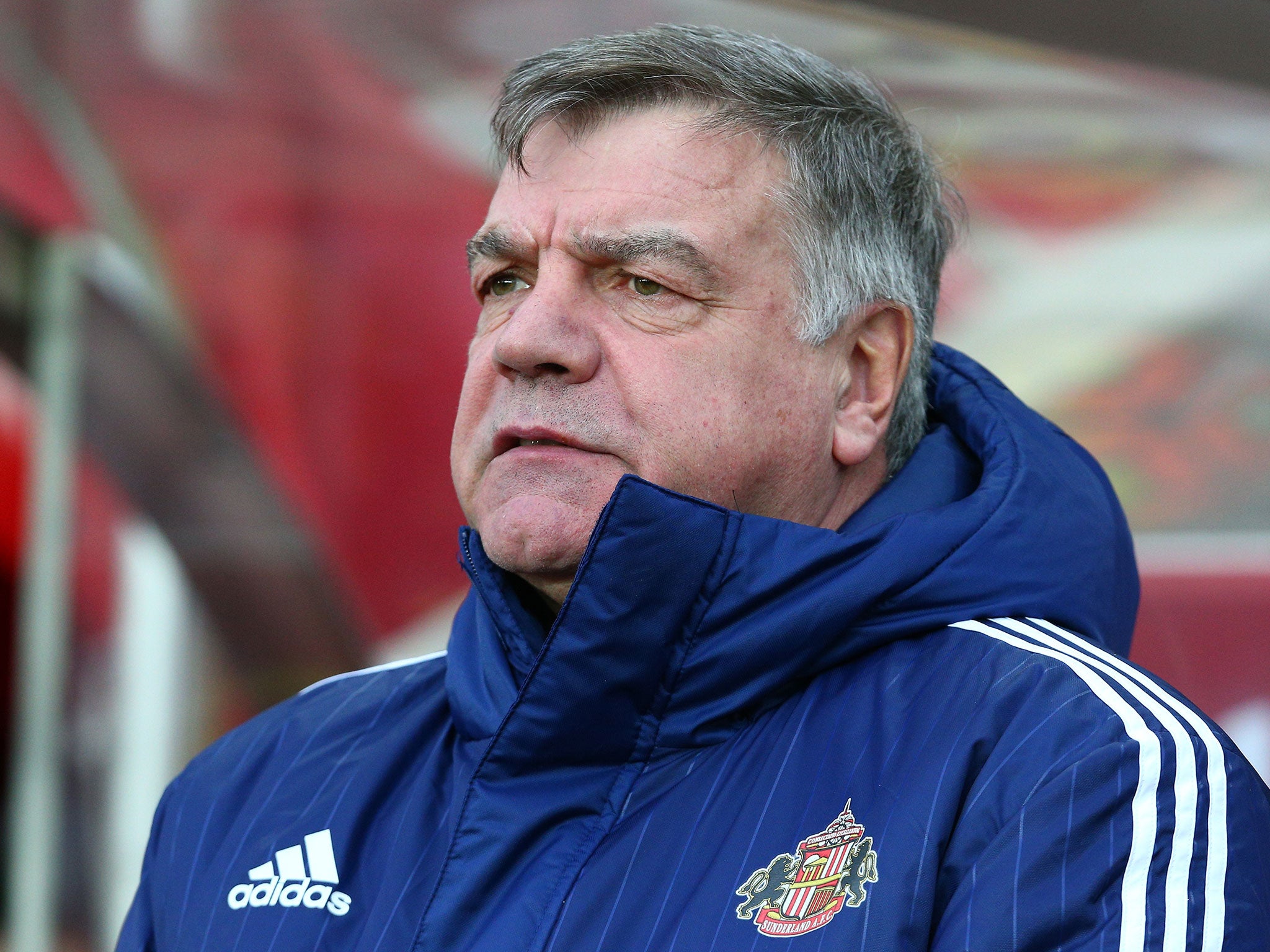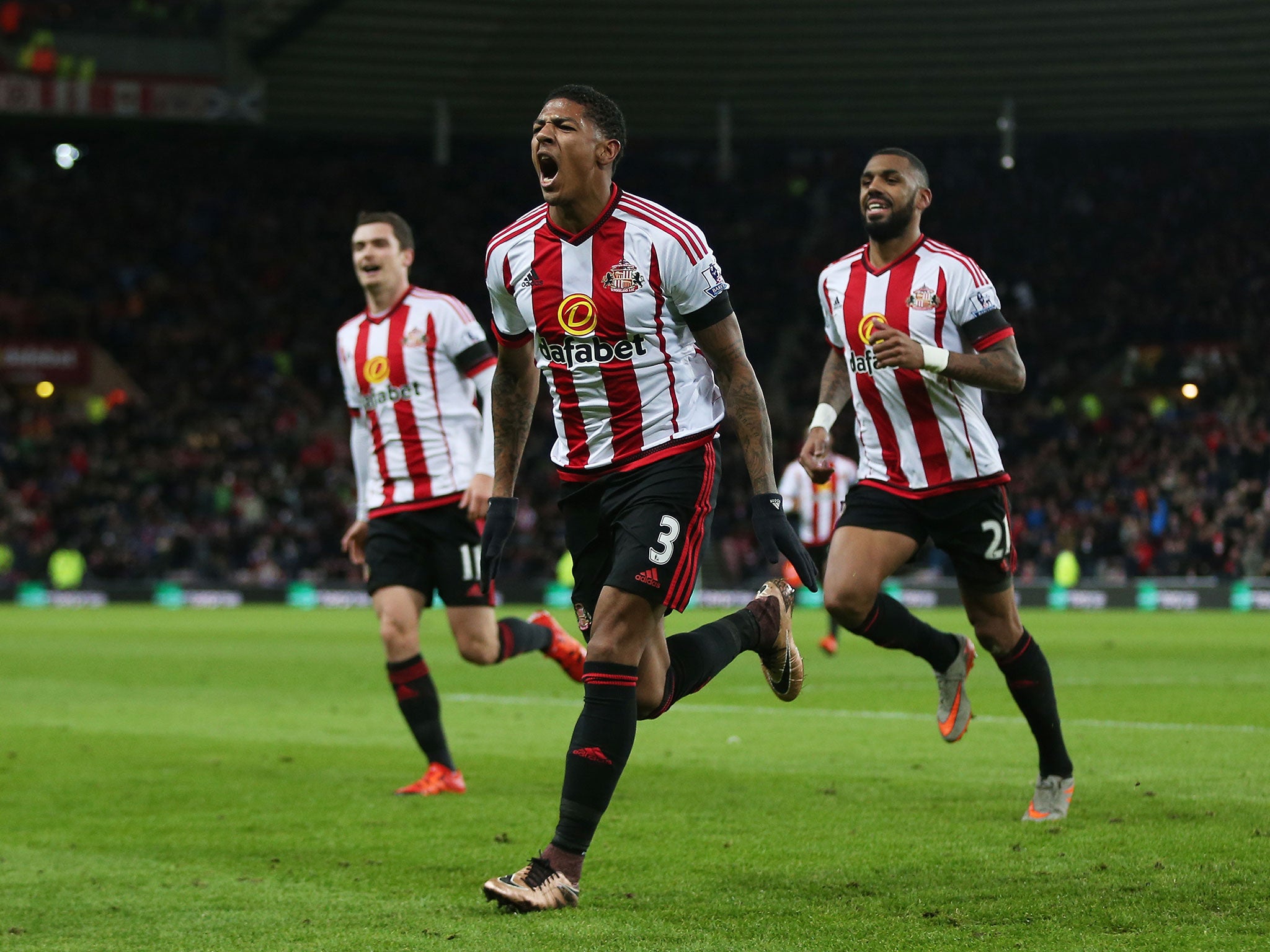Arsenal vs Sunderland: How Sam Allardyce has revived Black Cats
They were bottom of the table when Allardyce was appointed in October but visit Arsenal on Saturday out of the bottom three and seeking a third straight win. Martin Hardy identifies the five changes that made the difference

Your support helps us to tell the story
From reproductive rights to climate change to Big Tech, The Independent is on the ground when the story is developing. Whether it's investigating the financials of Elon Musk's pro-Trump PAC or producing our latest documentary, 'The A Word', which shines a light on the American women fighting for reproductive rights, we know how important it is to parse out the facts from the messaging.
At such a critical moment in US history, we need reporters on the ground. Your donation allows us to keep sending journalists to speak to both sides of the story.
The Independent is trusted by Americans across the entire political spectrum. And unlike many other quality news outlets, we choose not to lock Americans out of our reporting and analysis with paywalls. We believe quality journalism should be available to everyone, paid for by those who can afford it.
Your support makes all the difference.Switching to a back three and working on positioning
Jamie Carragher joked on Monday Night Football 12 days ago that he was fearful of bumping into Younès Kaboul for fear of being hit, such was his weekly criticism of the Sunderland defender. After a clean sheet and a victory at Crystal Palace, Kaboul was handed the man-of-the-match award by goalscoring team-mate Jermain Defoe. There was another blank in the home victory over Stoke City last Saturday.
Sam Allardyce’s first major promise was to stop his defenders making stupid mistakes. It was not the vow of a romantic, but the new Sunderland manager has been as good as his word.
Key to that was the decision to play three central defenders, with John O’Shea and Sebastian Coates alongside Kaboul. The three are never a great distance from each other. Sunderland suddenly look a different team.
“I don’t think they were playing with a lot of direction,” said Allardyce. “I don’t want to criticise Dick [Advocaat, his predecessor] too much. They certainly were not playing to defend correctly when they didn’t have the ball. Every footballer has to accept responsibility that they are not going to have the ball all the time. So they have to do well without it to make sure they win a game.
“I think my particular life here is working with the back lads, talking to them about their positioning – where they should be, especially in the final third; what is the right body position, how deep are you, are you too wide, in the right position to start with?
“I have spent a fair amount of time on all that. Sadly it gets a little boring for them, I guess. But fortunately it gets better the more they learn and the quicker they learn, the less you have to do it.”
Setting his players some science homework
Allardyce took over a desperate group of players. It is worth remembering that. He needed to use the time when they were not with him as much as the time when they were.
To that end Allardyce, one of the pioneers of sports science in English football, set his players homework on iPads as soon as he took over. “If a player can digest his own statistical information away from the football club, in his own time, when he’s not under any pressure – without a coach standing over him – it can help him,” he said.
“The visuals are posted to the players, downloaded onto their iPads and iPhones. We calculate that information into short bursts before we play, on strengths and weaknesses.
“That information will not stop, and they will realise that. I know that information works, because it’s worked for the last 15 years. It worked at Newcastle, at Blackburn, Bolton, it worked at West Ham. So I expect, ultimately, for it to help.”

Making them each take responsibility
Sunderland’s culture was about dreadful losing runs, managers leaving and a lack of anybody accepting that it might actually be their fault. Allardyce has sought to change that.
“It’s talking about responsibility – an individual and a team responsibility,” he said.
“The game is a simple game. If you’re going to affect the game, the simpler you make it the easier it becomes. You don’t need to complicate it. Many people try to complicate it by talking about systems, and different types of positions, false No 9s, stuff like that.
“It’s a game of football and if you’re playing against somebody, if he’s playing better than you, stop him. If you’re playing better than him, carry on playing like that and work as a team together.
“If your mate’s not playing so well, help him out as best as you possibly can, encourage him. If you get those simple basics in place, then you start getting better as a team and more confident, not only in yourself but in each other.”
Making use of Duncan Watmore’s pace
The new manager instantly identified a major failing in Sunderland’s personnel when he arrived – their lack of pace. It made the side predictable, easy to defend against and unable to catch opponents on the break.
Allardyce was drawn to the penetration of a 21-year-old forward who played without fear. He moved former non-league player Duncan Watmore ahead of big-money signings Fabio Borini and Jeremain Lens in the pecking order and has been duly rewarded.
Watmore is a ball-carrier with pace. He gets Sunderland out of their own half, something they have found extremely difficult for several seasons. He got the second goal in the 2-0 win over Stoke and has earned a new four-year contract.
“Duncan came in and made an impression,” Allardyce said. “It’s nice to see a young man burst on the scene and show excellent ability. He’s been a massive bonus. I did not expect that when I came here. So he has an opportunity to become a regular.”
Beating bitter North-east rivals Newcastle United
It cannot be over-estimated how important this has become. In terms of creating a honeymoon period for the new Sunderland manager, it is vital. Newcastle were bossing the derby at the Stadium of Light before their captain Fabricio Coloccini was sent off. It revitalised Allardyce’s side, who went on to win 3-0. There have been two more victories since then – three in six games in total.
Beating the Geordies created an immediate bond between manager and fans. “We took full advantage of a piece of good fortune,” said Allardyce. “I thought it was a foul because, if he hadn’t made contact with him, Steven Fletcher would have scored. It was on his left foot, his best side. It was a bit harsh sending Coloccini off.
“I’m the fourth manager here to beat our local rivals in their second game. I find that a bizarre statistic – but it was very nice to have kept the run going and make it six in a row against Newcastle.
“It was a huge three points. The pressure on us was enormous. It took us far too long to get our first league win under our belt but we picked up from there.”
Join our commenting forum
Join thought-provoking conversations, follow other Independent readers and see their replies
Comments